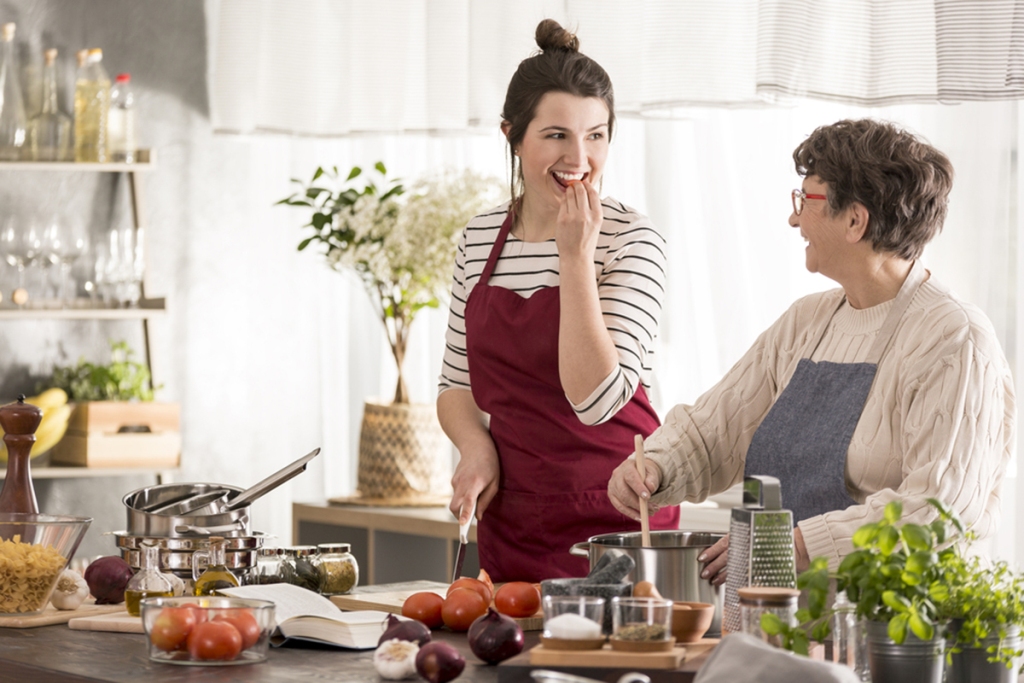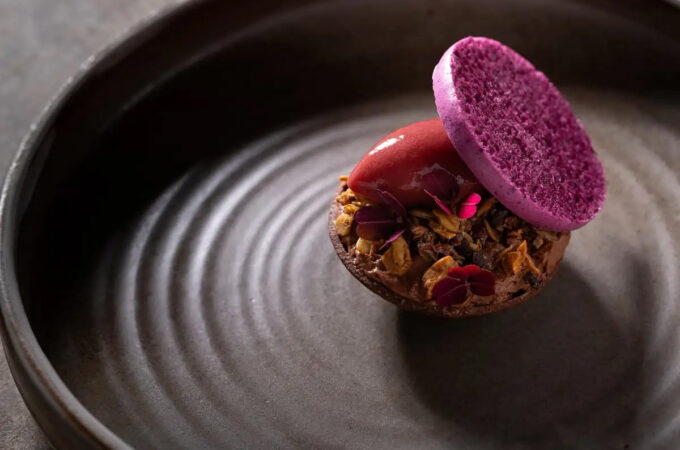
Passing Down the Wisdom: 9 Cooking Tips Your Grandmother Can Teach You
Everyone remembers a time when they sat in their grandmother’s kitchen, watching her cook a delicious meal. Many kids wanted to help, to have the smallest, easiest task to say that they contributed in some way. They were always eager to place some small role in getting a meal ready, even if it was as something as simple as measuring and adding the salt. But we were never given the chance to feel like big kids and use the fancy sharp knives… probably for good reason.
Then, for some reason, we gave up on that as teenagers. Our interests change. But eventually, when we outgrow that phase, we always come back to the cooking lessons we learned from our grandmothers in order to pass on those traditions to the children we may have in the future. So here are the top 9 cooking tips that have been passed down from generation to generation. Check out Online Cooking Classes to Help You Brush Up on Your Kitchen Skills. You can also check this cooking guide for beginners for more tricks and tips.
1. Directions First, Experiment Later

It’s easy to believe yourself to be a master chef after you’ve been cooking for a while, but that’s the best way to ruin any recipe that you’re trying out for the first time. Even if you don’t like a specific ingredient in it, it’s always best to follow the recipe to the letter first. That way you know exactly how to make it and what it should taste like. There’sno use meddling with something before you know what flavor palate a dish has.
Then, once you’re used to making it a few times, you can adjust the recipe with different ingredients to tweak it to your personal tastes. That way, you’ve gotten everything down pat before you start fiddling with the recipe. Even culinary chefs started out learning the basics before they were able to develop their own personal menus in the kitchen.
2. Don’t Rush
The first time you’re trying out a recipe, don’t plan to make it right before a meal’s supposed to be served. You need a lot of time to familiarise yourself with a recipe. There’s also the risk of you getting something wrong and you want to give yourself time to fix it, even if that means cooking it a little longer or having to go out to get more ingredients.
It’s best not to rush because that can increase the chances of you making a mistake, either in the cooking or preparation process. The last thing you want to do is rush when you’re holding a very sharp knife. Or maybe you put in a tablespoon of salt instead of a teaspoon, or you confused the salt for the sugar. Worst of all, rushing can make you miss a step altogether so that you’re missing half the ingredients. That’s why it’s important to give yourself a lot of time and room to breathe so that you’re not stressing out or making a stressful situation worse.
3. How to Make the Perfect Gravy

Gravy is one of those condiments that can make a meal so much better. But not many people know how to make the best gravy. That’s where your grandmother’s advice comes in. It’s a slow process that requires a lot of patience and a careful eye to see when you should keep mixing or stop cooking.
To thicken the leftover meat juices after cooking, you need a thickening agent like cornstarch. But you don’t want to dump it in all at once. You don’t want your gravy to end up clumpy. You also don’t know how thick it’s going to become while you’re cooking it and you could end up with no gravy at all.
So the best advice is to take time adding cornstarch and keeping stirring it while it cooks. Check on it periodically and add a little more until it becomes the right consistency. Don’t forget to taste it too to see if it has enough seasoning.
4. Brown the Meat First
If you’re going to be baking a hearty dish that has meat in it, it’s always a good idea to brown the meat first. Not only does this ensure that your meat is cooked all the way through so that you don’t risk food poisoning, but the baking process will also make the meat more juicy and tender. If you’ve ever had a dry meatloaf, then you know something went horribly wrong during the cooking process.
And if your baking dish has a lot of spices and seasoning, the meat will be even more flavourful in the baking process. Browning the meat beforehand is an additional step but it generally doesn’t take very long to do, especially if you’re using the best carbon steel pan. Just add it to a pan and cook until it’s brown all the way through.
5. Getting Rid of Onion Smell

Everyone’s dealt with this problem before: you’re cutting onions for a delicious dish and the tears start coming. What’s even worse is that your hands will smell like onions for the rest of the day. No matter how many times you wash with soap, it seems you can never get rid of the smell.
Not many people know of this clever trick to get rid of that annoying onion smell: rub your hands against your sink. It sounds farfetched, but it actually works, especially if your sink is stainless steel. This is because the ions in the stainless steel band with the smell of onion particles and remove them from your hands. If you don’t believe us, try it the next time you’re working with onions. It’s like a party trick!
6. Cucumber Therapy

If you’re in a particularly bad mood one day, you can take out your frustrations on some cucumbers. Then when you’re ready to cook with them, they will already be prepared for your dish. First, you need to cut your cucumbers into 1.5- to 2-inch lengths, then cut them in half. With the skin side up on a cutting board, place the flat of your knife against each length and smack the back of it with the hell of your hand. This is a great way to get the seeds out so that you don’t have to pick them out of your teeth later. It’s a win-win situation.
This process also softens the flesh of the cucumbers enough so that they’ll absorb more flavor in the cooking process. See? Something good can come out of your anger if it’s channeled properly.
7. Lower the pH
When cooking any dish, you want it to be as flavorful as possible. You may think this is achieved by adding a lot of seasonings, but this secret is actually much simpler. All you need to do is add a splash of vinegar or lemon juice into whatever you’re making. This is particularly useful in soups that are bean- or broth-based. Just a little bit of acid will bring out the flavors of the other ingredients. Experiment with different acidic juices to see what works best in your dishes.
8. Always Be Prepared for Last Minute Guests

Be careful if you drop any cutlery when you’re eating dinner. The old saying goes is that if you drop a fork, you should expect a female guest; dropping a knife means that a male guest is showing up. That’s why it’s always a good idea to have extra when you’re making any meal, as it’s a sign of courtesy to offer an unexpected guest something to eat when they stop by. They’ll be quite grateful for the sharing of your meal, and they may extend the offer the next time you show up on their doorstep.
9. Cleaning Out Your Fridge
Remembering to put food away can be a hassle, but remembering to clean your fridge on a regular basis can be even more difficult to remember. To make it easier on yourself, you can reduce your cleaning time by wiping the bottoms of containers before putting them back in the fridge. This includes storage containers, milk jugs, and bottles of syrup. This ensures that there will be no rings of residue on your fridge shelves so that they won’t need to be wiped down later. After all, no one enjoys taking out all those shelves to wash them in the kitchen sink when all they really want to do is eat.
These helpful tips in the kitchen will not only make you appreciate everything your grandmother did for you a little more but the extra time spent will improve the flavor and results of your dishes. That extra attention to detail will also demonstrate to those you’re cooking for that that you care about them. Take the time to savor the cooking process, double check all your steps, and be open to trying new things you were afraid to do before. Dipping your toes into a little experimentation is fine, just as long as you’ve mastered the basics of a recipe first.




